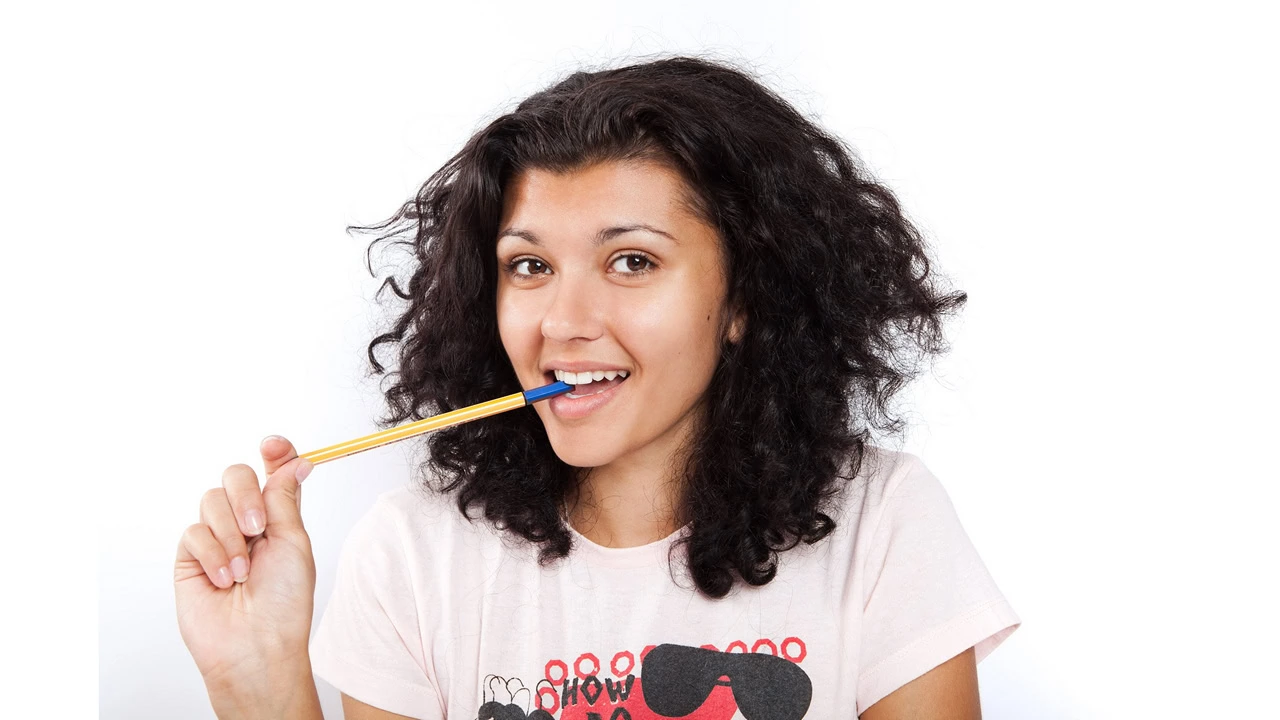Today's Friday • 8 mins read
— By Dr. Sandip Roy.
“Some people are too tired to give you a smile. Give them one of yours, as none needs a smile so much as he who has no more to give.” — Anon
- Many believe forcing yourself to smile can make you feel happy.
- The idea has been around for generations but lacks convincing proof.
They say a fake smile makes you happy. People across generations and continents have said that for ages. But is it true? What does science say? The answer might surprise you.
“Why don’t you smile more often? It will make you happy!”
I got that advice recently. Many of us get that advice. Leo Widrich, the co-founder of Buffer, was once told by one of his teachers, “Why don’t you smile more? Go learn how to do it!”
But can putting on a smile make you happy, even when you are not feeling happy?
Popular wisdom says so. It is an anecdotal piece of advice that has served us for generations.
What do the scientists think about it?
Early Research: Facial Feedback Hypothesis
- In 1974, James Laird proposed that facial expressions influence emotions.
- He found people felt happier when smiling and angrier when frowning.
- This aligned with an older idea from Charles Darwin and William James.

It goes back to a 1974 paper in the Journal of Personality and Social Psychology by James Laird. He proposed the theory of self-attribution of emotion.
In simple terms, Laird said:
- If you are smiling without any non-emotional reasons to smile, then you must be happy.
- If you are wearing a frown, then your mind reasons that you are probably sad.
Laird used an elaborate contraption of electrodes attached to the faces of 77 participants to manipulate their facial expressions — without their knowing — as they watched cartoons.
He concluded, “The subjects described themselves as happier when they were in a smile expression, and angrier when they were in a frown expression.”
It was like the earlier Facial Feedback hypothesis, which said our facial muscles can send feedback to our brain and influence our feelings and behavior. First suggested by Charles Darwin and later by William James, in simple words, it says your expression can make you feel the emotion.
Suppose you are a young person who is at a late-evening party full of serious people in formal suits. You feel just so bored. But if you forced yourself to smile, you’d feel happier, as per the hypothesis.
The Pen-in-Mouth Experiment
- Strack asked people to hold a pen in their mouths to mimic a smile or frown.
- Those who mimicked a smile found cartoons funnier.
- Widely cited as proof that fake smiles boost happiness.
A decade and a half later, a similar experiment took place — the famous “pen-in-mouth” study by Strack, Martin, & Stepper (1988).
They asked students to hold pencils in their mouths in a certain way while rating how funny the cartoons were.
The students first held a marker tightly between their pouted lips. And then hold the same marker between their front teeth while keeping the lips drawn out as if to “say cheese.”
See the picture below:

In each posture, they were to rate some cartoons from The Far Side on a scale from 0 (not at all funny) to 9 (very funny).
The researchers concluded that those who were “smiling” judged the cartoons funnier than those who were “frowning.”
Now, there was proof that smiling could make us happier, and frowning could make us sad. It went viral! People began to ask anyone looking glum to smile — because science said smiling could make them happier.
Thus, an old moral truism became an evidence-backed truth.
And then came more science — could smiling make us happy and frowning make us sad?
Failed Replication: A Twist In The Tale
- A 2016 large-scale study with 1,894 participants was unable to replicate the 1988 results.
- This questioned the idea that facial expressions could directly influence emotions.
How does science work? Science collects knowledge by observation and experiment, and then proposes a conclusion. But it doesn’t end there. There is another crucial part — replication.
Replication is when you get the same result when the original experiment is repeated.
Replication means that your conclusion holds. No replication means no proof that your theory works as you say.
Now, the twist in the tale played out this way:
Independent researchers across the world ran the test in their labs, but they found no effect of mouth position on how happy the participants felt.
17 independent laboratories around the world, with almost 1,894 participant,s could not replicate the results of the 1988 pen-in-mouth experiment. Not even one.
Wagenmakers, Beek, Dijkhoff, & Gronau brought out a Registered Replication Report (RRR) in the Perspectives on Psychological Science. They wrote,
“This RRR did not replicate the SMS (Strack, Martin, & Stepper) result and failed to do so in a statistically compelling fashion.”
It simply meant that Strack and his colleagues were wrong to conclude that social smiles make us happy.
The Debate Continues: Who Won The To-And-Fro
- Strack argued that changes in study conditions affected replication results:
- Participants were psychology students who knew about the experiment.
- The same cartoons used in 1988 might not be as funny today.
- Being recorded on camera could have altered participants’ responses.
- Critics responded, saying these factors shouldn’t invalidate the findings.
Want to know what the ironic part of the whole replication controversy was? It was Strack himself who had volunteered to offer his “pen-in-mouth” experiment up for replication.
In the initial stages, Strack even gave his generous advice to the researchers who ran the replication study. The psychology community applauded Strack for his brave offer.
Strack had expected the new experiment to confirm his original findings.
However, when he read the report, he was not too pleased. Strack argued there were “several issues” in the RRR meta-study that led to replication failure. He said since the study conditions were different from his original settings, the results were different too.
Strack even posted a write-up to back up his argument, with these points:
- The Subjects Were Aware: An overwhelming number of the participants were psychology students. So they already knew about the original experiment. It reduced the effect.
- The Far Side Cartoons Lost Fun: There is a question if the same cartoons (Gary Larson’s The Far Side) that were iconic in the 1980s would have the same effect on people thirty years later.
- The Cameras Dulled The Effect: The labs directed a camera at the participants. This, Strack says, may have induced a self-focus in the subjects and tampered with the results.
- The Small-Study Effects: He points out an oddity in the graphs that could result from data fishing, “without insinuating the possibility of a reverse p-hacking.”
More fun: One psychologist from the RRR team posted back point-wise in this blog post (that, believe me, even uses The F-word):
- If the psychology stream participants were aware of the 1988 experiment result, then why should it shrink the effect and not enhance it?
- The Far Side cartoons are still kind of funny enough. And why do cartoons need to be “unambiguously funny”?
- The camera hypothesis is a novel one, and Strack should prove it since he proposed it. The burden of proof lies with him.
- The report does not show any evidence of reverse p-hacking, and its null result is robust enough to stand strong.
Final Words
- No proof that faking a smile would make you happy.
- Still, smiling makes you seem more approachable and likable.
Strack was later told to collaborate with Israeli scientists to prove that the cameras pointing at the students who were biting the pen reduced their happiness. We don’t know what happened after.
So, the ultimate answer to whether a fake smile can make you happy is:
A fake smile cannot make you genuinely happy.
If you ask me, I can say that smiling does make us appear more sociable and likable. Because smiling is a form of fear reaction that we learned during evolution.
Your smile lets others know that you’re not harmful or malevolent.
Your social smile may find someone who smiles back at you, and that moment may find you breaking into a genuine smile.
Some people are too tired to smile at you. Give them one of yours, as none needs a smile so much as he who has no more to give.
So smile. Even if you call me riding high on optimism there.
• • •
√ Also Read: 10 Happiness Hacks From Positive Psychology.
√ Please share it with someone if you found this helpful.
» You deserve happiness! Choosing therapy could be your best decision.
...
• Disclosure: Buying via our links earns us a small commission.